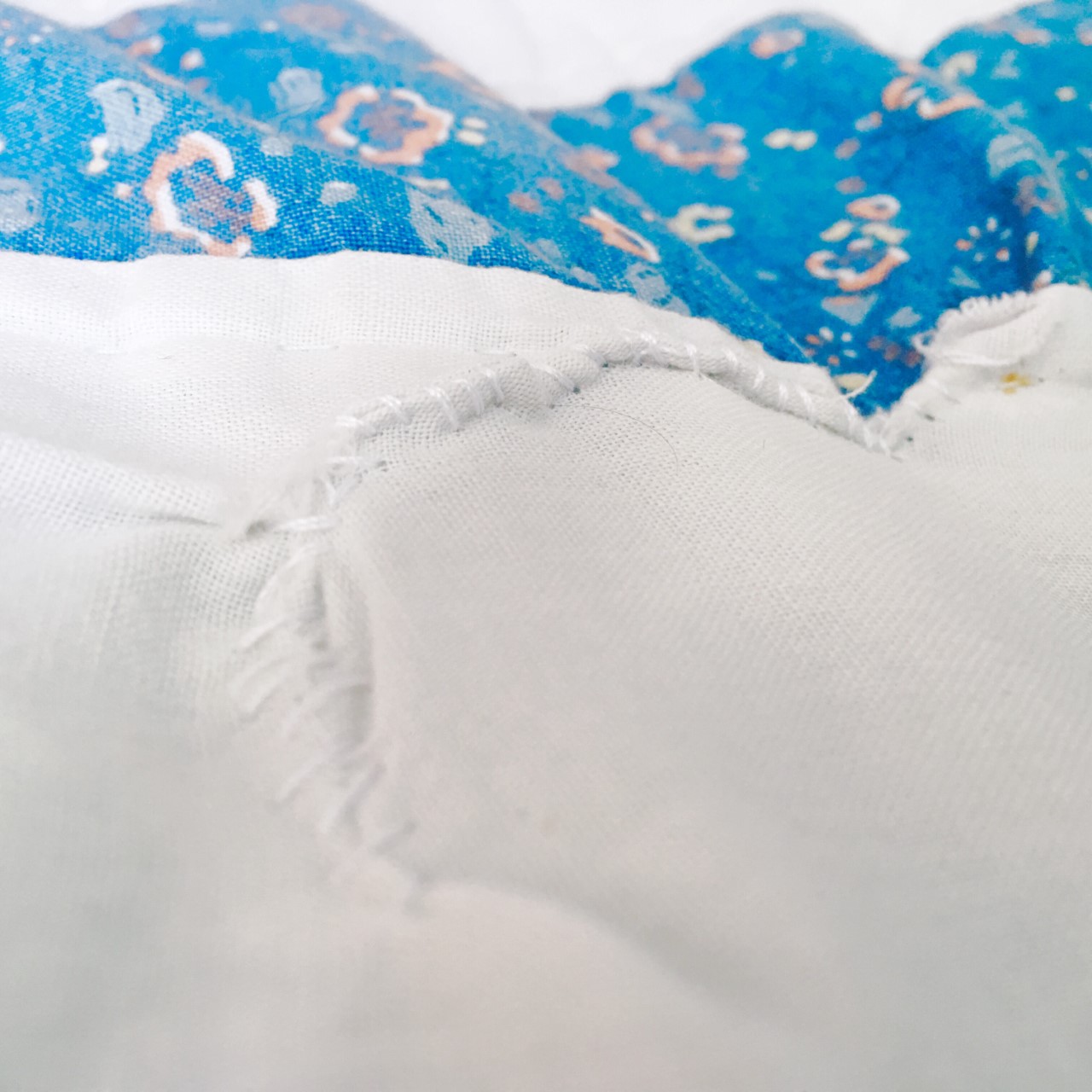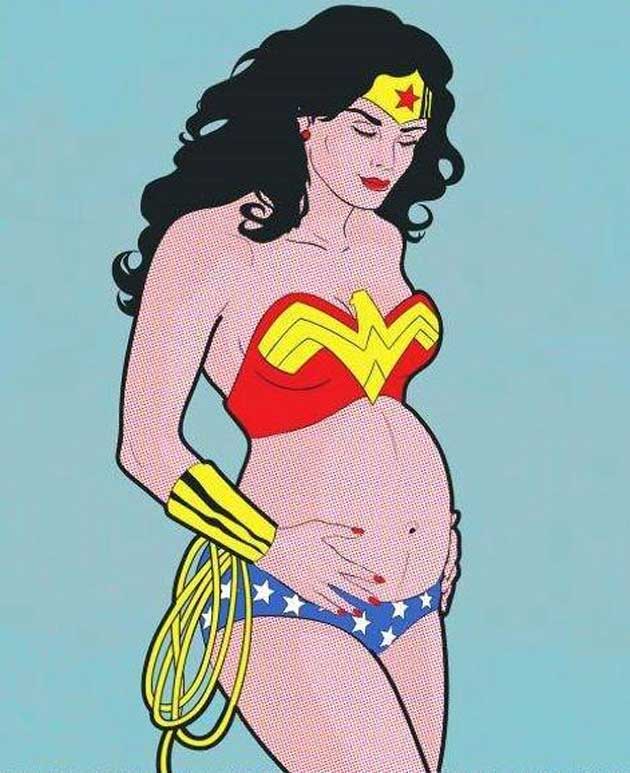
Mostly I Fear the Fuck out of it
THIS ARTICLE WAS FIRST PUBLISHED IN OCTOBER 2015 IN STANDARD ISSUE MAGAZINE
I did a little choke when I saw that it was Bi-Polar Awareness Day on 6th of October. The little choke held within it a dark bark of a laugh and a bit of held-back bile.
You could say I am already quite aware of bi-polar on October the 6th. Because it is the day my bi-polar Dad topped himself. Thirteen years ago now. I am aware of it in the preceding weeks as Autumn creeps in, I am aware of it the day before when he was planning it, I am aware of it on the 7th when he was hanging in his flat alone, and I am aware of it on the 8th when he was found, when the police knocked on our door, when my mum delivered the line “He’s finally gone and done it”, and when my life changed forever. I am also aware of it all year round, in the media, with friends who have it or think they have it or friends who wouldn’t dare to consider that they might have it. But the 6th is pretty much D-Day, bi-polar awareness wise.
I first heard Dad had ‘something wrong with him’ when I was about 18 or 19. Manic depression was the more fashionable term for it back then. I got told that he often got ‘quite down’, and that was about the extent of the explanation. I didn’t live with him so it was easy for him to hide it, and I was in no position to question him. It remained this opaque unspoken thing. He told us he’d ‘had a small stroke’ then retracted it. Another time he told us he had six months to live but wouldn’t tell us why despite our begging. Six months came and went. He was still alive. But he wouldn’t talk about it. An “inoperable tumour” was mentioned but nothing more. I never heard him use the language of depression for it. He was ashamed. He didn’t give medication a chance. After he died we discovered his flat was full of pills he never took, all stuffed into empty cigarette packs. Hidden, like his condition, like his truth. A guilty secret.
Then there was a condensed period of a sharp decline in his mental faculties, the downward slope of a handsome man giving up on the world, smelliness, shabby clothes, dull skin with pothole spots that always bled, dull eyes, financial mess, stints in a mental hospital, then eventually, exhausted, I stupidly ignored the last voicemail I ever got from him and a few days later he was dead. After lying about dying for so long, after years of manipulation, violence, fraud, a thousand other things, the most wonderful loving generous confusing mixed-up twisted fuck up of a man I knew but never really ‘knew’, gave up. He didn’t take his life, he threw it away.
Now I look back and see these ‘grand lies’ of his – customary checklist things of the bi-polar – as flags stuck in his timeline when he thought he was going to ‘do it’; as him readying us as best he could without explicitly telling us “I am going to kill myself”. The boy who cried wolf kept changing his mind until eventually he got swallowed up by the beast inside.
Since Dad’s death there have been many phases to grief, making sense of and making peace with his suicide, a lot of questions, a lot of finding no answers. But I haven’t explored bi-polar itself as a condition very much. Done no real reading or talking about it. Because I swing from thinking there are no real answers in the ‘still quite vague’ science of it all, to annoyance at people who bandy the condition about like a handy label, to fearing that I won’t like what I learn about it.
A big fear when you lose someone to bi-polar, to suicide, someone who gave you half your genetic heritage, is that you might have it yourself. Particularly when you have spent the best part of thirteen years wading through grief. What is grief, and what is ‘it’? That’s my awareness of it. The fear of the black dog in the shadows.
Do I have it? Bi-polar? My reflex is to say no. “No.” (Even to laugh.) But I can feel something dark turning over in my guts like a subterranean creature as I say it, spiking me with rough fingers, seeking acknowledgement. It’s a ugly thing. It wants me to say yes. But is this just the fatalism of a daughter’s gothic heart? Is it a foolish romantic tribute to Dad? Do I want it, for him, because it’s a link, and because all links are proof of where we’ve come from, and we all want roots? Because I don’t want him to have been alone in it?
Or do I have it? Do I actually have it, is it a real inherited thing, as much my own as a passed down family sea-chest or box of silver spoons, mine until I pass it on, a genetic gift? As I move further away from grief and settle more into my natural adult self, as I feel the push and pull of these dark moods, as I recognise various things that appear on the bi-polar checklist, I wonder. I wonder.
Mostly I think – No, surely I can’t have it. I was a happy child, full of light. I didn’t know desperation til much later, after Dad. I wasn’t found with my head in a gas oven when I was thirteen like he was. I never felt even close to down or wanting to die. The worst I ever felt was the strange vileness that can take over a girl when her hormones turn her a bit mad. That’s not bi-polar, that’s being a woman. That strange cycle lassoed to the moon that turns some of us near-lunatic for a day or two in every twenty eight. And all that crying I did over films, books, the news, soup adverts, history and literature lessons at school – that was just a young human getting to know the world which is big and crazy and scary and too sad to make sense of. And the patterns in the highs and lows is not remarkable, they’re just natural fluctuations because humans aren’t set to a constant level, because we’re not fucking robots. And all the other tickable things – shitness with money, flashes of intense libido – that’s just normal shit. That doesn’t mean one day I’ll go to the car and take out some blue towing rope and wave goodbye to the world with my hands and feet jiggling like an Al Jolson puppet. Does it?
I think all that and comfort myself.
But mostly I fear the fuck out of it. Because who wants to wind up like their dad, dangling in a doorway?
I don’t know. And I don’t want to know. For now. Perhaps if another depression ever bites me really bad I will need to talk more, get to a doctor for answers, perhaps I will need the labelled condition to give me comfort with its cold classification, I will need to reveal myself. Be who I am and let someone help. Let someone be kind, let someone be strict. Let someone peer into the darkness with a torch.
But we all have dark days. I have days where I fear all is lost, all is ruined, all will never be the same, that everything is about to end, that I just want to not be here anymore. So does everyone. Living in the outside world with all its shit can be enough for this, you don’t need inner demons to make you feel desperate. Sometimes I don’t even have a reason for feeling lost. I can be euphoric one moment, beaming on a bus just because a song in my headphones is beautiful and the sun on the buildings is fucking beautiful and oh look at that funny mental old man in the street shouting at cigarette butts, isn’t he strangely beautiful, and then can be hurled down, smack. Into the cellar like a kidnapped fairytale character, a woodcutter’s daughter taken hostage, left staring up at a crack of light and wondering why she’s not outside warbling with sparrows anymore. Sometimes the light grows so faint it’s like it’s gone out completely. It just comes that way. And then it passes. The light comes back.
Are the sudden shifts to blackness just due to outside factors triggering latent memories? Is my sub-conscious full of landmines, ready to be stepped on at any moment; no knowing exactly where they are? Will I spend my life learning to spot them, to spot their shape under the dirt and avoid them? Is it just my psychology, my experiential map that might be charted with time and patience? Or is it chemicals in the brain? Is it that ever-common thing, bi-polar, that more and more people seem to be grabbing hold of like ballast on a sinking ship, because it somehow makes sense to them, of them? What’s worse; our topsoil morphing psychology, or a baser condition underlying it all? We’ve all got to have a thing or two or ten; why shouldn’t bi-polar be mine? I’m not self-diagnosing, and I seldom have much respect for those who do, and most of the time I still mostly think ‘not me’ – but why should I be spared its inconvenience simply because I have suffered its effects with my father’s death? There’s no fairness in any of this stuff, is there. Why shouldn’t I maybe even be killed by the same thing one day? Something has to end me. Why is it any worse than the cruelty of cancer, which has no sense of propriety in the way or time it takes us, at any age or state of readiness?
But I persist in hoping. That it is not something I share with Dad. Whose death almost took me itself. I came close, but I came back; stepped away from the darkness. And whatever I am now is what I am for now. I will change again. Life while I have it will see to that.
This week will be tough. It always is. But the light will come back. It always does.















